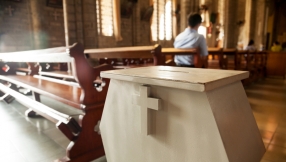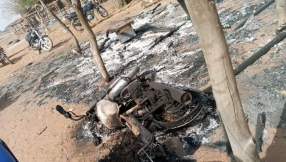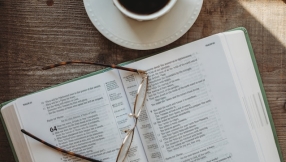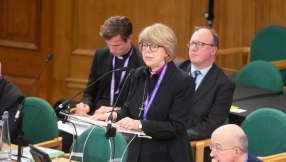"I am not giving up hope."
Trapped in Mae La refugee camp, eight miles from the Myanmar border in northern Thailand, nearly 40,000 people have fled the world's longest running civil war. Behind them a toxic mix of religious and ethnic difference has fuelled a conflict with such horrors that experts have repeatedly said it is genocide.
Dudu Pho peered across the dark room in his well-built bamboo hut as he continued: "We always hope. But what we hoped for this year still hasn't happened."
There is little prospect those aspirations will be realised this year. Or next year. And that has been the case for the 30 years he has been here.
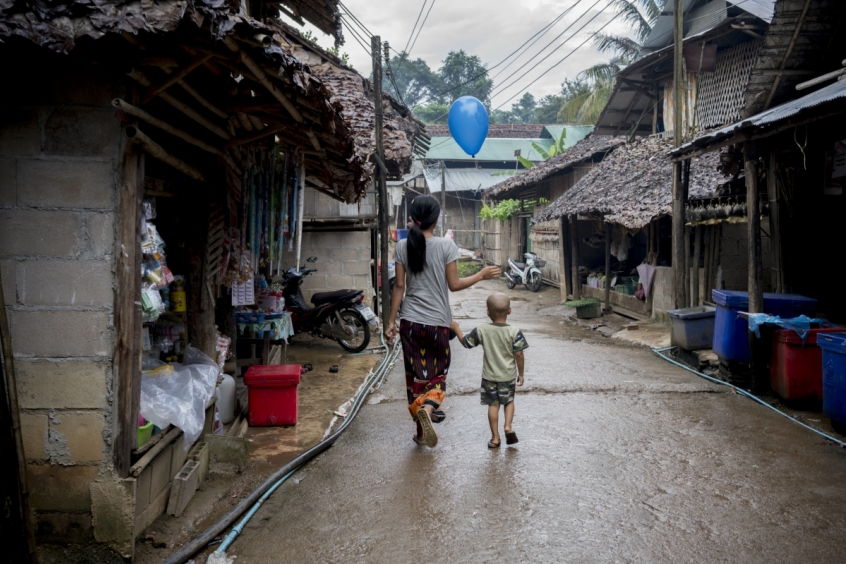
In total more than 100,000 refugees have fled Myanmar to find themselves stuck in camps on either side of the border.
Since the British gave Myanmar its independence in 1947 the country has been at war. State-sponsored gang rape was used by the army, which is Burmese in ethnicity, against minority groups like the Karen and many others. "Systematic torture" was another regular tactic to suppress the hill tribes who fight for federal autonomy from the central government. Whole villages have been lined up and shot in what one refugee described as the "ethnic cleansing" of minorities.
More recently the army have been accused of "crimes against humanity" in its treatment of minority Muslim ethnicities in particular.
"The past is always in my mind," said Tha Taw, one refugee in her 40s. "When I think about the past I feel afraid." Deeply traumatised she still shook with fear when approached by strangers. "When I see big people I remember the soldiers coming to my village and shooting people."
Most of the 100,000 refugees spread across nine camps and 24 townships either side of the Thai-Myanmar border are Karen in ethnicity. Around half are Christian, 35 per cent are Buddhist and 8 per cent are Muslim.
Although primarily an ethnic war, Muslims across Myanmar were especially targeted by the military who want to create a Buddhist national state.
"Muslims were chased out because they were Muslim," said Tha Win, leader of the Muslim Women's Organisation.
"The government don't consider us Burmese, they just think we are terrorists," said Thaw Kersein, a community leader in a Muslim section of the camp. "They don't want us there. The army have said Karen people could return unless you are Muslim. If you are Muslim you have to convert to Buddhism if you want to return."
The war is now officially over with ceasefires signed between most warring ethnicities. But sporadic fighting continues.
Aung San Suu Kyi's National League for Democracy swept to power in November 2015 in the country's first credible elections for decades. But before her landslide victory the army ensured the constitution reserved 25 per cent of seats in Parliament for the military as well as the three key ministries of defence, home affairs and border affairs. Barred from the presidency because she married a foreigner, Suu Kyi's hands are tied.
An ambivalent attitude towards the new leadership resonates among most refugees in the camps.
"I don't hope yet but I may do in the future." Shew Laing, 55. "I don't know how she will solve the problem," said one. "She does not have much power," said another.
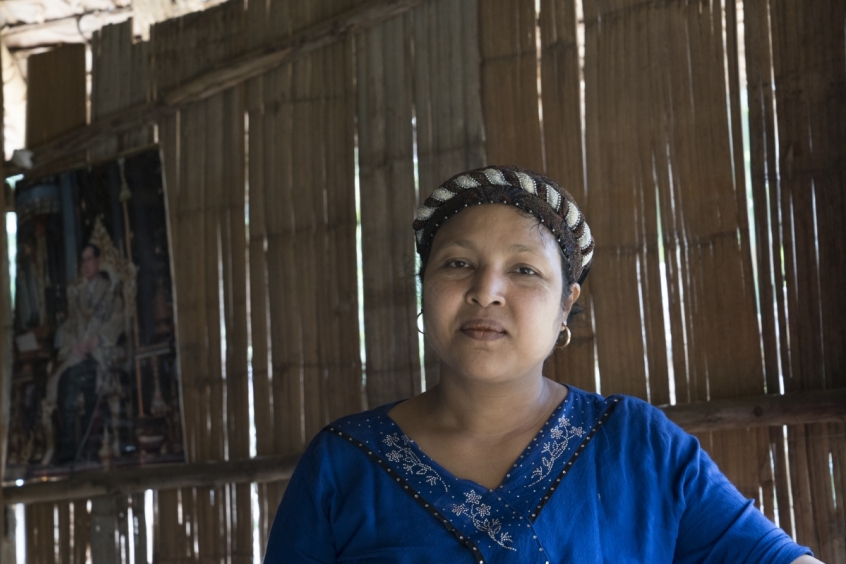
Hope is painful when it is shown to be false. And the Karen refugees have learnt not to fall for that trick again.
And so they are stuck. Despite the push from the United Nations towards "voluntary repatriation", most know it is not safe to return.
Oomaung Hai, 63, tried to go back to his village having being told it was safe. But he found it overrun with four separate warring factions.
"I am so scared," he said. "I don't want to go back. I will stay here forever.
"There is no hope for me. I have lost hope."
Hai is typical of most of Myanmar's refugees. Some of those born in the camps hope for resettlement to the US, Australia or Canada. "It is not good to go back to Burma now. There is no freedom," said one 22-year-old Mee Mar. "But even if it got better I would not like to go back. I am not sure how I would use my life there."
Even the older refugees who remember life in Myanmar do not generally want to return. "I don't want to go back," said Tha Thaw. "I want to have my family safe and to stay in a safe place."
She, along with thousands others, have sacrificed their freedom for their safety.
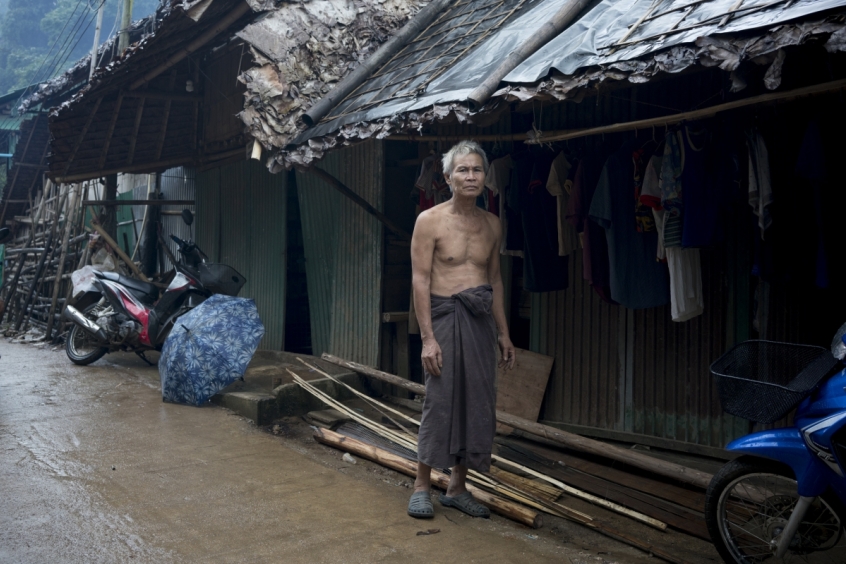
Food, quality education and good healthcare are funded by donor governments and organisations like The Border Consortium (TBC), supported by Christian Aid. Thanks to them and several other NGOs, monthly rations are provided in the camps.
But refugees are not allowed to leave. The Thai authorities have made it illegal for them to work and if they are caught outside the camp without permission they will be arrested.
Many large families struggle to eat with the limited food provided so sneak out to work in the surrounding farms where they can earn around £3.50 a day. "It is only human to wish to go outside," said one 20-year-old.
One elderly woman had not seen her husband for three days since he left to work on nearby farms. She had no way of knowing whether he is safe or has been arrested. "I feel scared," she said. "I worry whether he will be safe."
The Thai authorities are notoriously hostile towards any press attention on the camps. But at the end of a week in and out the camps the assistant to one camp commander agreed to speak anonymously.
He admitted there was "an issue" of refugees leaving the camp without permission but refused to answer why the refugees could not be given work permits.
He also acknowledged there was "a dilemma" for Muslim refugees who will not be accepted by either the Burmese or Thai authorities. "A group of people like Muslims cannot return so there is a problem for them," he said. But when asked why Thai visas were not given as an option he simply said that was "the regulation" of the authorities.
Without an immediate option of return and no prospect of being accepted as asylum seekers in Thailand, the refugees have little to live for. Half of the camp have never left because they were born there. The others have not been out for more than 30 years in some cases.
Inevitably suicide and drug abuse has spiralled.
Kathai Mae, 23, is the oldest of eight siblings. Her father killed her mother and then killed himself as a result of alcohol addiction. "My father didn't work. He just got drunk," she said.
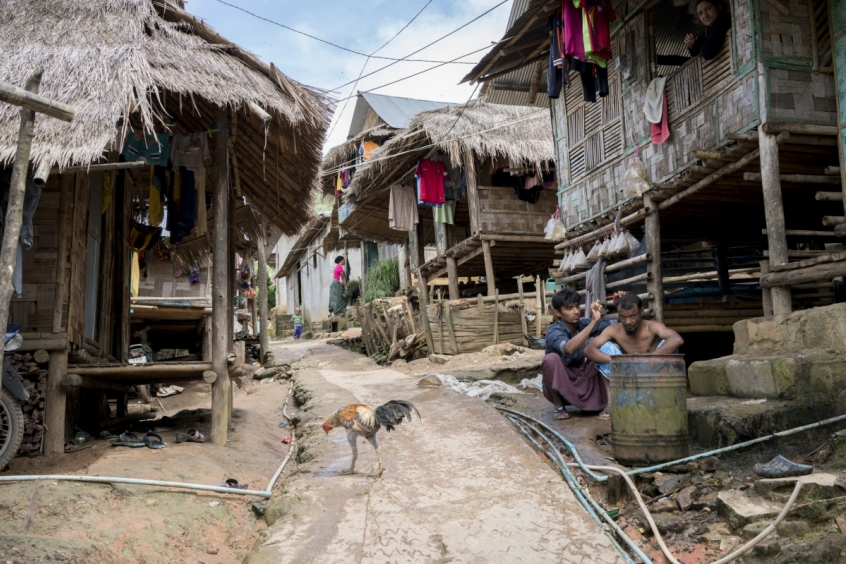
It is a bleak reality. On the surface the camps are well provided for. They have monthly food provided, several schools, a college and a hospital. The leadership is well organised and, largely, well respected. Indeed the quality of education and healthcare provided in the camps is generally better than in the surrounding rural Thailand. Some refugees admitted the facilities were an initial draw when faced with the prospect of increased violence, possible rape and no education in Myanmar.
"It's better here because we can go to school," said one 20-year-old boy, Loyal Moo, at the camp's college.
For others it is the simple provision of food they most appreciate. "Life is better here because we get a food ration every month," said Yin Aye, a grandmother who fled Myanmar as one of the earliest refugees.
For others it is the free healthcare. "Here I don't need to pay for treatment but if I go elsewhere I wouldn't know how to pay for treatment," said Tha Taw.
Some donors, seeing this comparative luxury, have cut funding.
But beneath the surface they are oppressive places.
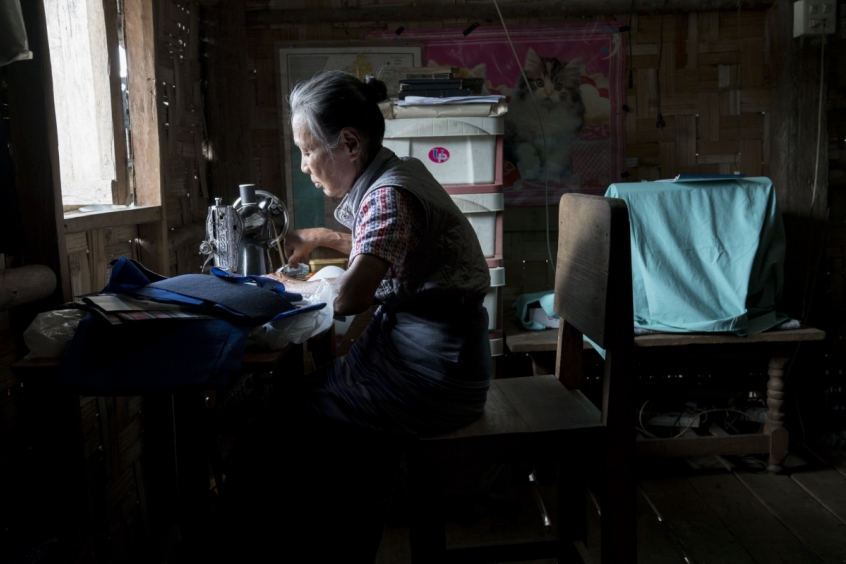
Mae La camp alone has thirteen churches. Outside one a tall pillar bore the words "faith, hope, love". The full phrase found in 1 Corinthians 13 begins: "and now these three remain".
For the 38,146 refugees in Mae La and more than 100,000 others dotted in different camps, this is truer than ever.
One Christian refugee, Tin Aye, 64, had spent her whole life fleeing the Burmese army. She left her town in 1977 and fled to a border village. The military then took over that village so she fled again and became a refugee in Thailand. But even then the army would cross the border into Thailand and attack the camps in an effort to eradicate the Karen. Twice her tiny wooden house in the camp was burnt down as soldiers repeatedly attacked.
She wept as she told her story. "But I am not angry at God," she said. "When I pray I find my problems are smaller. I get energy and strength from God. I really trust God. As I pray to God I really receive from him. During the battle I just prayed because I had nothing but I prayed and he helped."
Christian Aid is urging people to support its Christmas Appeal this festive season, so that it can continue to provide critical support to some of the millions of people worldwide who have been forced to leave their homes through fear and uncertainty in the worst global displacement crisis of our time.
Just £5 could give an essential set of clothes to a person fleeing violence, £11 could supply a week's worth of hygiene essentials to a family of five in Serbia, and £50 could provide seeds and tools to help a family forced out of their home in the DRC to grow food to feed themselves.
For information, or to donate to the Christmas Appeal, visit www.christianaid.org.uk/Christmas










